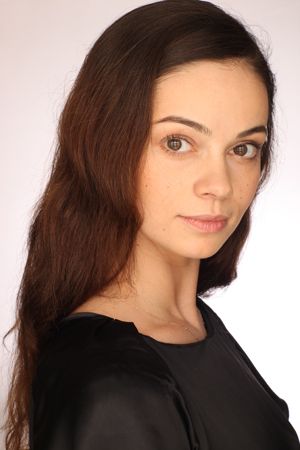
Mariinsky Ballet Company soloist Anastasia Kolegova dances for kings, and since childhood she has always managed to get her own way. She can enchant even the most demanding audience with ease. Her next step will be international glory. Looking at this delicate, light and beautiful ballerina you have no doubts whatsoever that she knows the secret of success.
Snob
Anastasia Kolegova’s fantastic technique, grace, elegance and good looks as well as her flawless performances of solo roles, variations and pas de deux literally made the auditorium explode in lengthy applause and cries of “Bravo!”
Zerkalo
• Prize-winner at International Ballet Competitions in Rieti (Italy, 2000) and Varna (Bulgaria, 2002)
• Recipient of a diploma and special prize from the Perm Academic Tchaikovsky Opera and Ballet Theatre at the Arabesque ballet competition for the best performance of choreography to music by Pyotr Tchaikovsky (Perm, 2002)
Born in Chelyabinsk.
Graduated from the Vaganova Academy of Russian Ballet in 2000 (class of Lyubov Kunakova).
Since 2000 she has performed with various dance companies including the St Petersburg Konstantin Tachkin Ballet Theatre, the Lithuanian National Opera and Ballet Theatre (Vilnius), the St Petersburg Boris Eifman Ballet Company and the Mariinsky Theatre.
Joined the Mariinsky Ballet in 2006.
Repertoire at the Mariinsky Theatre:
La Sylphide (Sylph); choreography by August Bournonville, revised version by Elsa-Marianne von Rosen,
Giselle (Giselle, Myrtha); choreography by Jean Coralli, Jules Perrot, Marius Petipa,
Le Corsaire (Medora, Gulnare, Trio of Odalisques); production by Pyotr Gusev after the composition and choreography of Marius Petipa,
La Bayadère (Nikia, Gamzatti, Grand pas); choreography by Marius Petipa, revised version by Vakhtang Chabukiani,
The Sleeping Beauty (Princess Aurora, Lilac Fairy, Princess Florine); choreography by Marius Petipa, revised version by Konstantin Sergeyev,
The Sleeping Beauty (Lilac Fairy); choreography by Marius Petipa, revival of the 1890 production,
Swan Lake (Odette-Odile, Swans, Two Swans); choreography by Marius Petipa and Lev Ivanov, revised version by Konstantin Sergeyev,
Raymonda (Raymonda, Grand pas); choreography by Marius Petipa, revised version by Konstantin Sergeyev,
Don Quixote (Kitri, Queen of the Dryads, Variation); choreography by Alexander Gorsky,
Michel Fokine's ballets The Dying Swan, The Firebird (Firebird) and Chopiniana (Nocturne, Mazurka, Seventh Waltz, Eleventh Waltz),
The Fountain of Bakhchisarai (Maria, Zarema); choreography by Rostislav Zakharov,
The Nutcracker (Masha); choreography Vasily Vainonen,
Pas de Quatre (Fanny Cerrito, Marie Taglioni); choreography by Anton Dolin after motifs by Jules Perrot,
Romeo and Juliet (Juliet); choreography by Leonid Lavrovsky,
George Balanchine’s ballets Apollo (Calliope, Polyhymnia), Serenade, Symphony in C (Second Movement), Jewels (Emeralds), Prodigal Son (the Siren), La Valse and A Midsummer Night’s Dream (Titania),
Carmen Suite (Carmen); choreography by Alberto Alonso,
Sylvia (Sylvia); choreography by Frederick Ashton,
Variations for two couples; choreography by Hans van Manen,
Russkaya; choreography by Vladimir Vasiliev,
The Little Humpbacked Horse (Tsar Maiden),
The Bronze Horseman (the Queen of the Ball); choreography by Rostislav Zakharov, Yuri Smekalov,
Paquita (Paquita); choreography by Yuri Smekalov, reconstruction and staging of Marius Petipa's choreography (Act III Grand Pas) by Yuri Burlaka.
On 23 February 2014 she performed in the closing ceremony of the XXII Winter Olympic Games in Sochi.